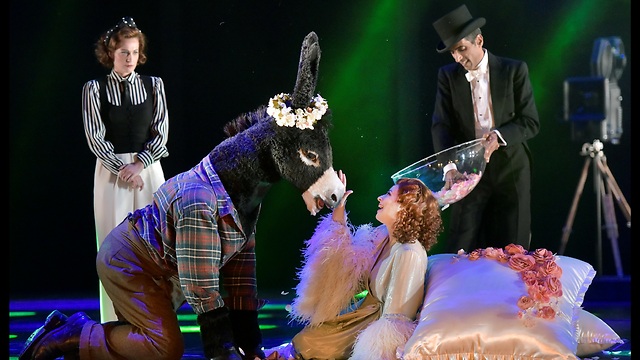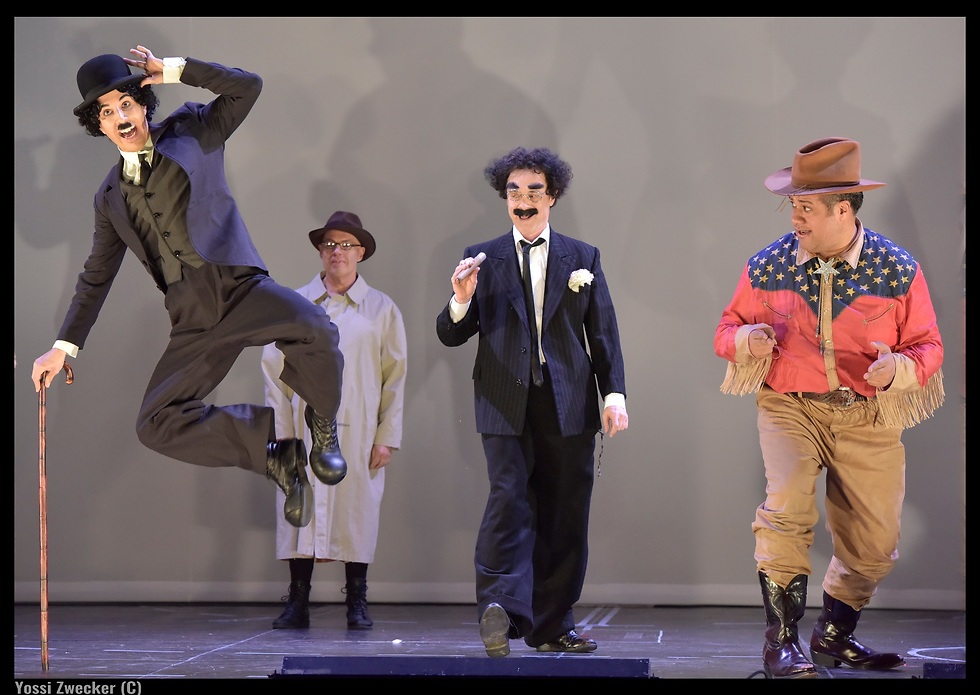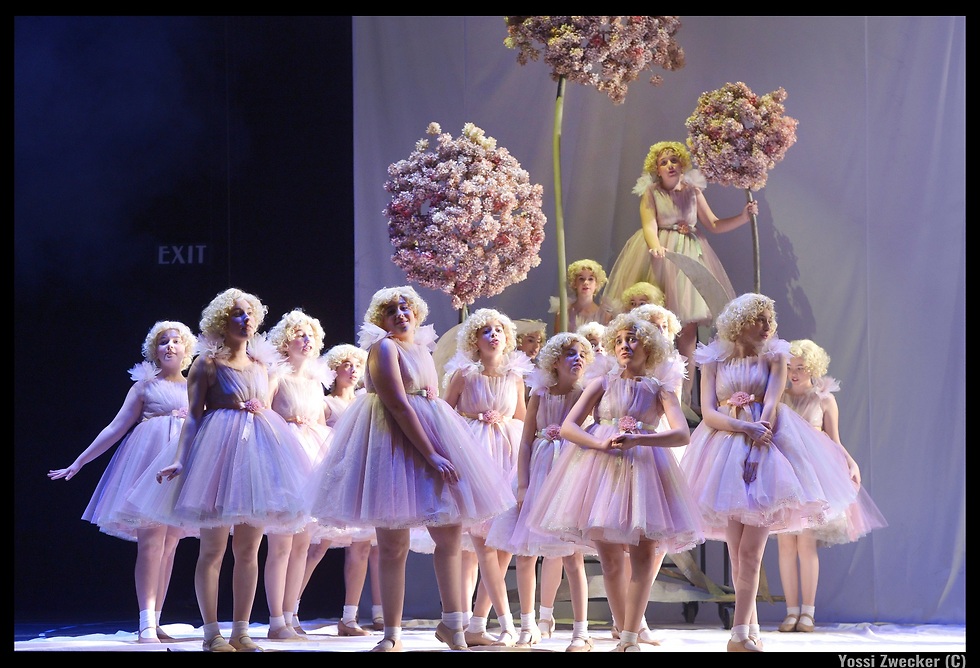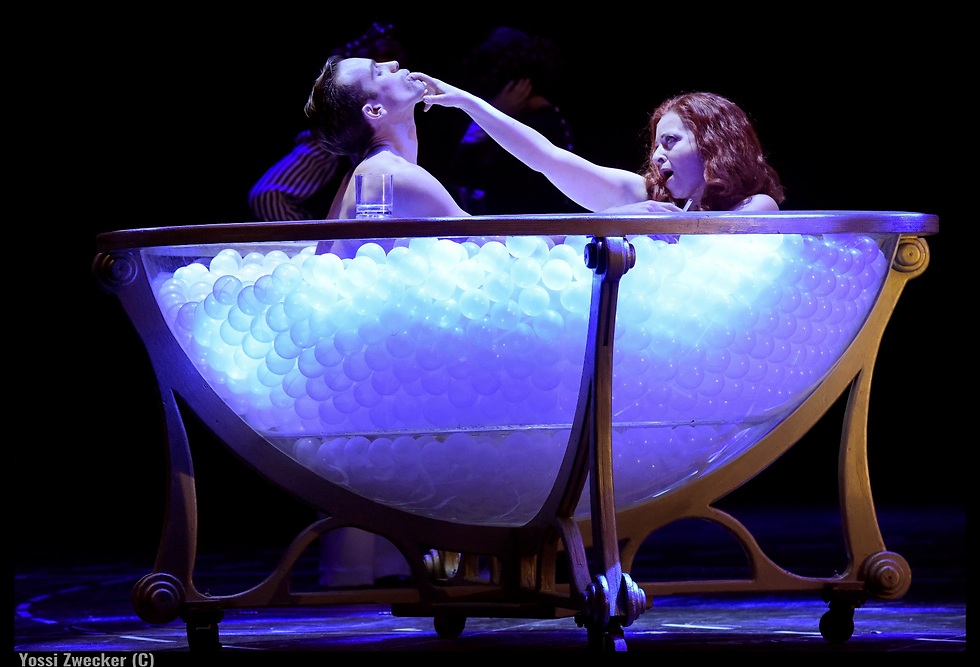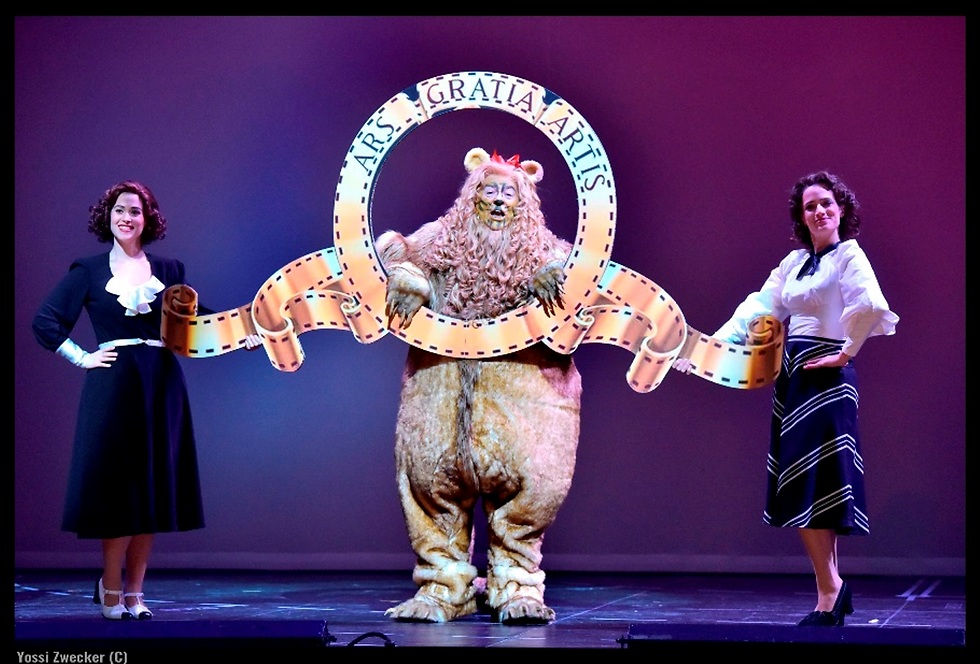It is not uncommon for an opera to be based on a play that long preceded it—but it is certainly rare for an opera to be composed after that play had been made into a motion picture. Yet that is exactly the case of the opera A Midsummer Night's Dream, by British composer Benjamin Britten, which debuted in England in 1960—25 years after a star-studded Warner Brothers’ production hit the silver screen.
This point is driven home at the very opening of the current Tel Aviv production of A Midsummer Night's Dream by the Israel Opera: the first thing the audience sees is a newsreel of the red-carpet Hollywood premiere of the movie screened on the stage’s curtain. As the opera unfolds, it is told as if it is being shot as a feature film, with (Fairy King) Oberon as director. This particular conceit is not uniformly maintained throughout the opera’s three acts, however, which is probably a good thing, as the machinations of the camera are more of a distraction than anything else.
The opera itself opens with the lilting chorus "Over hill, over dale," sung by Fairy Queen Tytania's attendants, originally scripted for boy sopranos, but sung here delightfully by girls of the Moran Children’s Choir. We next hear from Oberon, sung by Israeli countertenor Yaniv D’Or , who alternates in the role with Alon Harari. it is a rare thing in opera for the lead male role to be scored for a countertenor, but it is altogether appropriate for a Fairy King; and D’Or‘s voice, which occasionally flirts with falsetto, is pleasing in its range.
Hila Baggio, in the role of Tytania, is the one female lead who does not share her role with an alternate; once again—as she recently showed in her performance of Musetta in La Bohème—she sings brilliantly.
In fact, this can be said of all the soloists who appeared in the premiere: Joshua Bloom in the role of Bottom, Jason Bridges in the role of Lysander, Ross Rambogin in the role of Demetrius, Graeme Danby in the role of Peter Quince—all four making their Israel Opera debuts—as well as Israeli sopranos Yael Levita and Anat Czarny, in the roles of Helena and Hermia, respectively.
In addition to the singing, there are a few scenes of rather sensuous dancing, as well as lithe solo movement on the part of Yossi Zabari in the role of Puck. More controversial are the scenes that hint of a homosexual relationship between Oberon and the Indian boy—actually a young man, as played by Micha Amos.
For the first time in recent memory, the Israel Opera’s splendid resident orchestra—the Israel Symphony Orchestra Rishon LeZion—was not conducted at the premiere by the indomitable Daniel Oren. Instead, the baton was in the capable hands of Daniel Cohen, who will conduct through January 13; the final two performances of this run—on January 14 and 17—will see Ethan Schmeisser at the podium.
It must be said that the first half of the opera drags a little bit, and quite a few people left during the intermission. Those who remained for the second half had their patience rewarded: the pace picked up considerably, and the play Pyramus and Thisbe is absolutely hilarious. Especially noteworthy is the standout acting performance by tenor Eitan Drori as Francis Flute/Thisbe, who is scheduled to play the role in every performance.
The Hollywood theme is maintained in Pyramus and Thisbe as well, with Thisbe dressed like Dorothy in The Wizard of Oz and Quince/Prologue strutting around in the guise of Groucho Marx. It is hard to see what is gained by this extra wrinkle, although the mimicry of Yair Polishook as Robin Starveling/Moonshine/Charlie Chaplin is particularly amusing.
(Note: There is a lot of information in the Hebrew section of the printed program that is not in the English section, including a page outlining the Hollywood characters evoked in this production. It should be noted that the opening newsreel from the 1930s contains footage from this 2018 production that has been spliced in, while the photo and accompanying headline “Movie Mogul Marries Millionairess” in the final act purporting to be from a 1930’s American newspaper are Israel Opera fabrications).

















